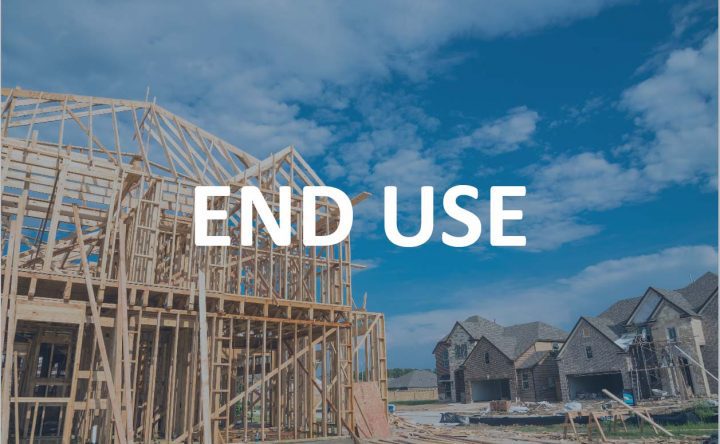The National Association of Realtors® (NAR) reported on Thursday (1-20-22) that total existing home sales, which are completed transactions for single-family homes, townhomes, condominiums, and co-ops, declined -4.6% in December from November. Sales were at a seasonally adjusted rate at 6.18 million homes. Year-over-year sales are down -7.1% (6.65 million December 2020).
News in end use
Mortgage Rates Climb Higher in Week Ending January 20, 2022 — The Fourth Week in a Row
Freddie Mac has released its Primary Mortgage Market Survey (PMMS) for the week ending January 20, 2022. The PMMS reports that the 30-year fixed-rate mortgage averaged 3.56% with an average 0.7 point, up from last week when it averaged 3.45%. A year ago at this time, the 30-year FRM averaged 2.77%.
Weekly Jobless Claims Increase for Second Consecutive Week During the Week Ending January 15, 2022
The U.S. Department of Labor is reporting that an additional 286,000 Americans made their initial filing for unemployment benefits during the week ending on Saturday, January 15, 2022. This is an increase of 55,000 from the previous week’s unrevised level. The 4-week moving average was 231,000 — an increase of 20,000 from the previous week’s revised average.
Housing Starts and Building Permits Increase in December, but Building Completions Fall Short
The U.S. Census Bureau reported on Wednesday (1-19-22) that privately‐owned housing starts in December were at a seasonally adjusted annual rate (SAAR) of 1,702,000. This is 1.4% above the revised November estimate of 1,678,000 and is 2.5% above the December 2020 rate of 1,661,000. Single-family housing starts in December were at a rate of 1,172,000. This is -2.3% below the revised November figure of 1,199,000.
Canadian Consumer Price Index Increases 3.4% on an Annual Basis in 2021
Statistics Canada (StatsCan) reported today (1-19-22) that the Canadian Consumer Price Index (CPI) increased 3.4% on an annual average basis in 2021. This is the fastest pace since 1991 (+5.6%) and it follows a 0.7% increase in 2020. Excluding energy, the annual average CPI rose 2.4% in 2021 — a faster pace than the 1.3% recorded in 2020 and 2.3% in 2019. While annual average growth was 3.4% in 2021, price growth differed between the first half and second half of the year.
Increasing Home Prices Continue to Inhibit Renters From Becoming Homeowners
According to a recent study conducted by realtor.com, last year’s cost hikes in the price of new and existing homes for sale eliminated nearly one million renters from the ranks of potential homeowners. The study reports that the income a household needs to pay a mortgage for a median-price home climbed to $ 62,872 in 2021, up from $55,186 in 2020.
With Millennials Leading the Charge, Demand Continues to Drive the Housing Market Higher
Mark Fleming, First American’s chief economist said, “Potential home sales measures what the healthy market level of home sales should be based on economic, demographic, and housing market fundamentals. One of the most consistent drivers of housing market potential over the last year has been new household formation. Millennials are the largest generation in U.S. history, and the bulk of them are aging into their prime home-buying years.”
Mortgage Applications Increase for Second Consecutive Week During the Week Ending January 14, 2022
According to data from the Mortgage Bankers Association’s (MBA) Weekly Mortgage Application Survey (WMAS), for the week ending January 14, 2022, the Market Composite Index — a measure of mortgage loan application volume — increased 2.3% on a seasonally adjusted basis from one week earlier. On an unadjusted basis, the Index increased 3% compared with the previous week. The Refinance Index decreased -3% from the previous week and was -49% lower than the same week one year ago.
Canadian Housing Starts Drop -22% from November to December
According to the Canadian Mortgage and Housing Corporation (CMHC), the trend in housing starts was 260,567 units in December, down from 267,606 units in November. This trend measures a six-month moving average of the monthly seasonally adjusted rates of housing starts in Canada. The standalone monthly SAAR of housing starts for all areas in Canada was 236,106 units in December, a decline of -22% from 303,813 units in November.
Home Sales Decline Month-Over-Month and Year-Over-Year in December
Redfin reported on Friday (1-14-22) that there were fewer homes than ever available for sale in December. This drove seasonally adjusted home sales down -3.6% from November and -11% when compared to December 2020 — the largest month-over-month sales decline since May 2020. On the other hand, home prices surged 15% higher year-over-year, marking the 17th consecutive month of double-digit home price increases.



